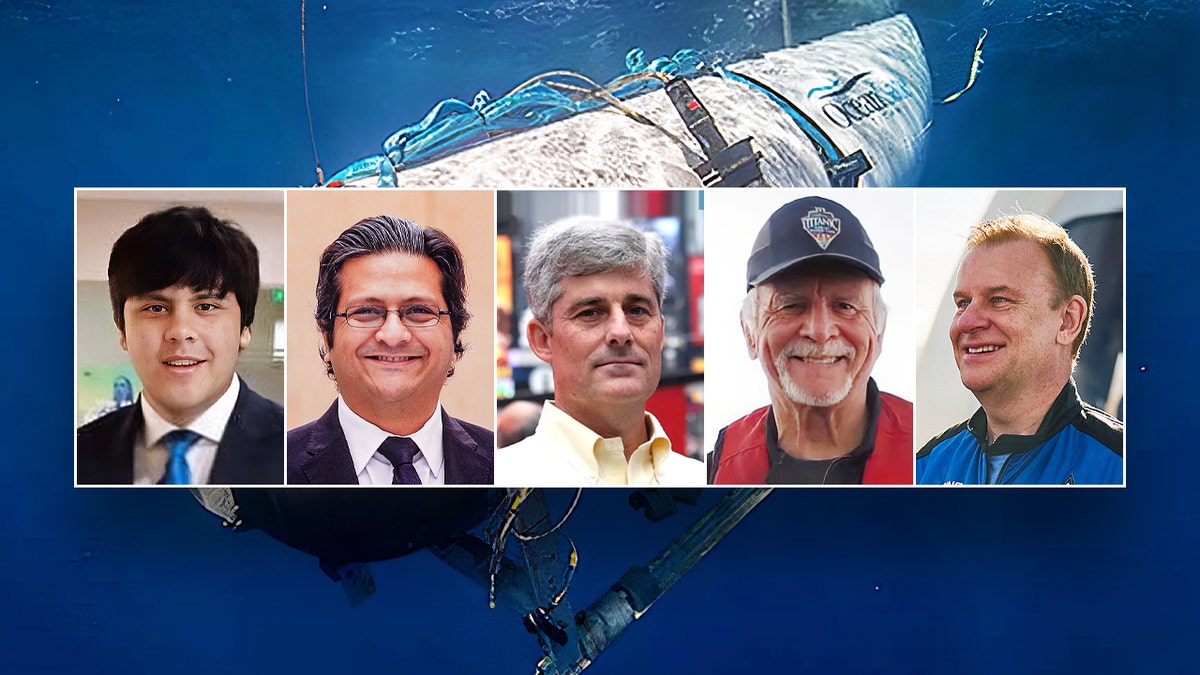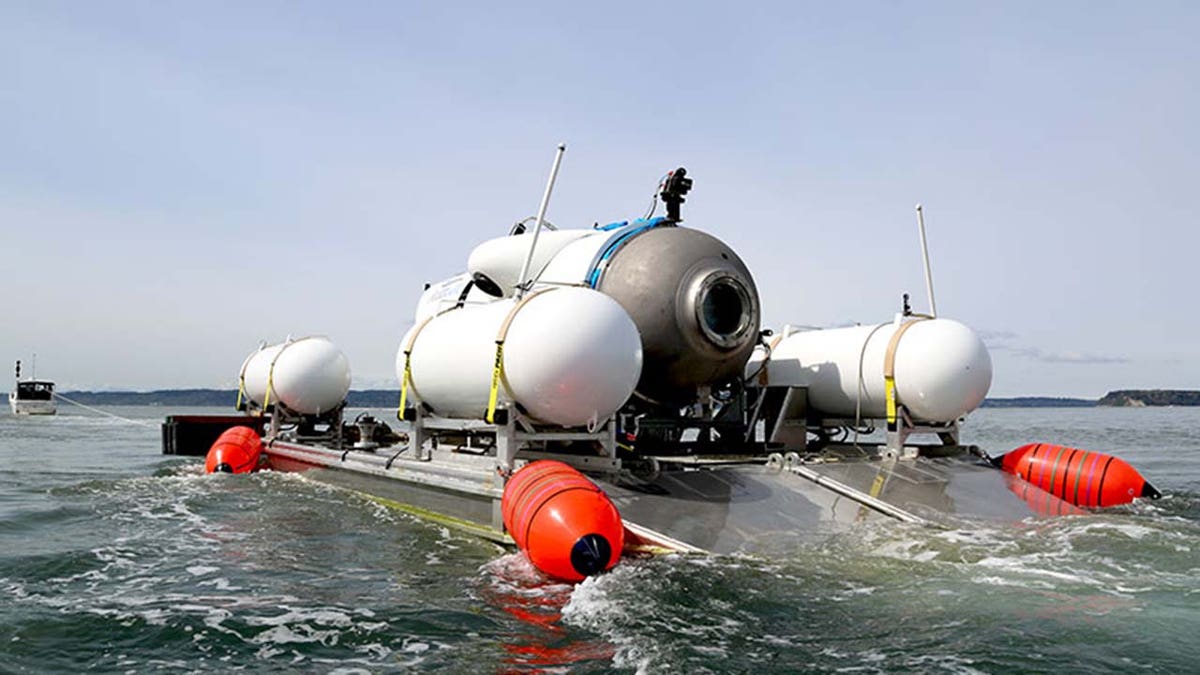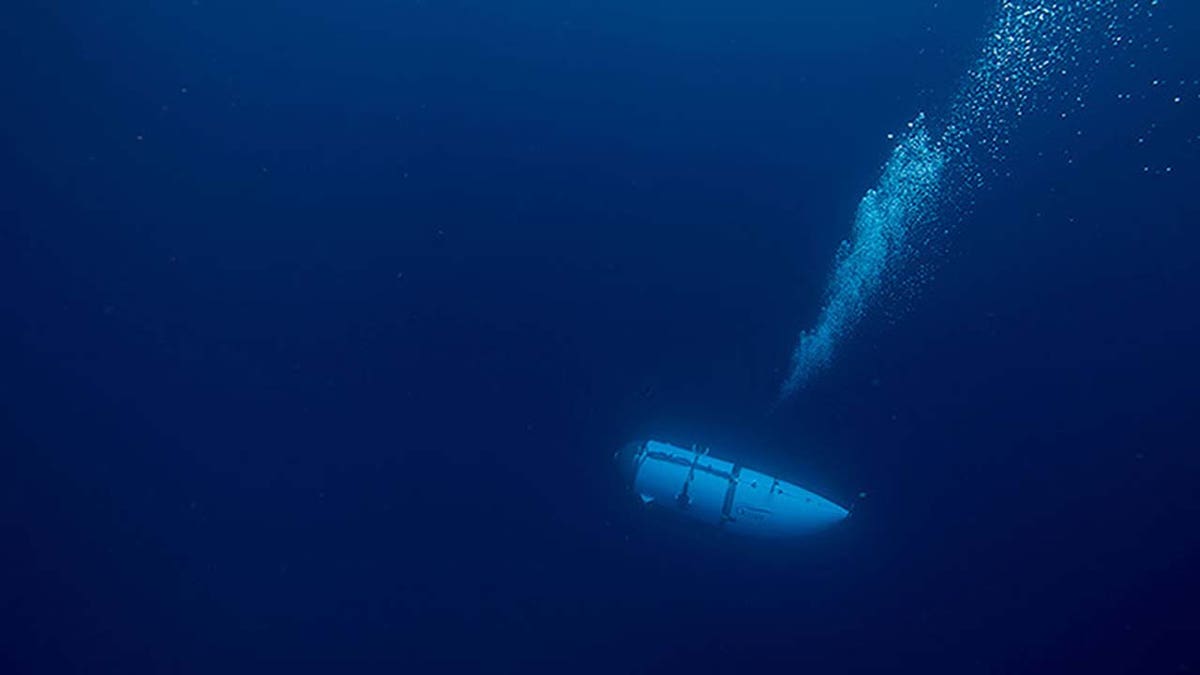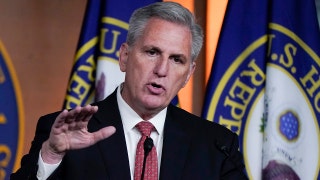Law professor Richard Daynard says OceanGate victims’ families have no case to sue
Richard Daynard, a professor at Northeastern University School of Law, said the families of the submersible victims do not have a strong case to bring against OceanGate.
The families of the four tourists killed in the Titan submersible last week have "no case" to bring against OceanGate if they decide to, according to a legal expert.
"I don't think they have a case at all," Richard Daynard, a professor at Northeastern University School of Law who focused in part on strategic litigation, told Fox News. "They knew the risk, they took it, and they should not be able to successfully sue."
Daynard compared the situation to cigarette companies, claiming that OceanGate was upfront with the risks, including putting the word "death" appears three times in the first page of the waiver, according to an interview with a former passenger for the New York Post.
LAW PROFESSOR RICHARD DAYNARD SAYS OCEANGATE VICTIMS' FAMILIES HAVE NO CASE TO SUE
"Cigarette companies were telling people for years, ‘oh, this is okay, there really aren't any dangers,’" he said, adding that he believes cigarette company executives were putting their customers at risk but not themselves. He pointed out that OceanGate founder Stockton Rush perished on the submersible.
"This was a best effort that somebody who actually knew a lot about what he was doing so that this was sufficiently safe that he was willing to go in it himself and did, in fact, go in himself," Daynard said. "So I think it's very hard to say that the company behaved recklessly…when the CEO of the company was right down there with them."
According to Daynard, a lawsuit would only be viable if it could be proved the passengers were defrauded or if it could be proven that Rush was acting recklessly.

Inset, from left: Suleman Dawood, Shahzada Dawood, Stockton Rush; Paul-Henry Nargeolet and Hamish Harding are aboard the OceanGate Titan submersible. (Engro Corp. | Reuters/Shannon Stapleton | @OceanGateExped/Twitter | Felix Kunze/Blue Origin via AP | Ocean Gate/Handout/Anadolu Agency via Getty Images)
'TITANIC' WILL RETURN TO NETFLIX ON JULY 1
Daynard pointed out that the trip came with risks and that the situation could not be compared to a regular trip such as a cruise or modern-day airplane flight. Instead, he compared it to if the Wright brothers took on tourists in the experimental phase of testing aircraft.
"This is clearly something experimental," he said. "It's something that obviously extends technology and sort of our technological imagination to the fullest and people were well aware of this, and they knowingly signed a waiver."
Daynard also said that the families may find it difficult to find lawyers who would take on the case.
"Lawyers don't bring lawsuits unless they think there's a chance if you win the lawsuit of actually collecting the damages," he said.

This file image provided by OceanGate shows the Titan submersible being towed in Everett, Washington. (OceanGate Expeditions)
Daynard added that he believes after this tragedy, the company will not be viable due to a lack of future tourists being willing to take the risk.
"If they replicate this particular Titan capsule, it's not going to have a long line of people signing up to pay $250,000 to go on that at this point," he said. "So my guess is there's not a lot of…there's not going to be a lot of money there, even if they were to win."
MISSING TITANIC SUBMARINE FOUND, CREW KILLED IN DEEP-SEA CATASTROPHE, COAST GUARD SAYS
"Lawyers, just like every other professional, want to be paid," Daynard added.

This file image provided by OceanGate shows the Titan submersible descending into the ocean. (OceanGate Expeditions)
"The way plaintiffs lawyers are paid is in the contingency fee, which means a fraction of the money that's recovered if the plaintiffs actually wins and recovers money from the defendant, if there's no money there, there's simply no reason to do it— it would be pointless a waste of professional time and money," he said.
CLICK HERE TO GET THE FOX NEWS APP
He questioned if a lawsuit would be worth possibly harming the families’ healing process.
"Why put a family through the additional hell of having to talk about this and a trial and so forth and so on and what their loved ones meant to them and what they thought their loved ones were thinking when they did it," he said.
Click here to hear more from Daynard.











































